




Keeping your vacuum cleaner in top shape is essential for maintaining a clean and healthy home. One crucial component of a vacuum cleaner is the filter. The filter helps trap dust, dirt, and allergens, ensuring that they don’t recirculate back into the air.
But how often should you clean your vacuum cleaner filter? The frequency of cleaning your vacuum cleaner filter depends on several factors, including how often you use your vacuum cleaner, the type of filter your vacuum cleaner uses, and the manufacturer’s recommendations.
In general, it is recommended to clean your vacuum cleaner filter every 1-3 months. However, if you have pets or if you frequently vacuum up larger debris or fine particles, you may need to clean your filter more often. Additionally, some vacuum cleaners have indicator lights or sensors that will alert you when the filter needs to be cleaned.
To clean your vacuum cleaner filter, start by checking the manufacturer’s instructions for specific cleaning guidelines. In most cases, you can remove the filter and gently tap it to remove any loose dirt and debris. Then, you can rinse the filter under running water or use a brush to remove stubborn particles. Make sure to let the filter dry completely before reinserting it into the vacuum cleaner.
Pro tip: Instead of waiting for your filter to get dirty, it’s a good idea to clean it regularly to maintain optimal performance and prolong its lifespan.
By regularly cleaning your vacuum cleaner filter, you can ensure that your vacuum cleaner continues to effectively remove dirt and allergens from your home. Remember to check your filter regularly and clean it as needed to keep your vacuum cleaner in peak condition.
Importance of Cleaning Vacuum Cleaner Filters
Regularly cleaning the filters of your vacuum cleaner is essential for maintaining its performance and ensuring better indoor air quality. The filters in a vacuum cleaner play a crucial role in trapping dust, debris, allergens, and other particles present in the air while vacuuming. Over time, these filters can become clogged with dirt, reducing their efficiency and potentially causing the vacuum cleaner to lose suction power.
Here are some reasons why it is important to clean vacuum cleaner filters:
- Improved Air Quality: Clean filters in a vacuum cleaner help to keep the air in your home cleaner and fresher. When the filters are dirty and clogged, they are unable to effectively trap dust and allergens, which can then be released back into the air. Regularly cleaning the filters ensures that the vacuum cleaner can efficiently remove dust and allergens from your home, improving indoor air quality.
- Better Performance: Clogged filters can cause a vacuum cleaner to lose suction power, making it less effective at picking up dirt and debris. This can result in multiple passes over the same areas, wasting time and energy. By regularly cleaning the filters, you can ensure that the vacuum cleaner maintains its maximum suction power and performs at its best.
- Extended Vacuum Cleaner Lifespan: When dust and debris accumulate on the filters, it can restrict airflow and put additional strain on the motor of the vacuum cleaner. This can lead to overheating and premature wear and tear. By cleaning the filters regularly, you can prevent unnecessary stress on the motor, allowing your vacuum cleaner to last longer.
Cleaning vacuum cleaner filters is a simple process that can yield significant benefits. The frequency of cleaning will depend on various factors, such as the type of vacuum cleaner and the amount of use it receives. However, as a general guideline, it is recommended to clean the filters at least once a month or as soon as you notice a significant reduction in suction power. Refer to the manufacturer’s instructions for specific guidance on cleaning your vacuum cleaner filters.
In conclusion, regularly cleaning vacuum cleaner filters is essential for maintaining optimal performance and improving indoor air quality. By keeping the filters clean, you can ensure that your vacuum cleaner continues to effectively remove dust, allergens, and debris from your home, while also prolonging its lifespan.
Why Regular Cleaning is Essential
Regular cleaning of your vacuum cleaner filter is essential for maintaining its performance and ensuring its longevity. Here are a few reasons why regular cleaning is so important:
- Improved Efficiency: A clean filter allows your vacuum cleaner to operate at its optimum level, maximizing its suction power and efficiency. This means you can clean your floors and surfaces more effectively and in less time.
- Prevention of Clogs: Over time, dust, dirt, and debris can accumulate in the filter, resulting in clogs. Regular cleaning helps prevent these clogs from occurring, allowing for uninterrupted airflow and preventing damage to your vacuum cleaner.
- Better Indoor Air Quality: When a vacuum cleaner filter becomes dirty, it can release dust and allergens back into the air, diminishing indoor air quality. Regularly cleaning the filter helps remove these particles and improves the overall air quality in your home.
- Extended Lifespan: By cleaning the filter regularly, you can prolong the lifespan of your vacuum cleaner. A clogged filter puts additional strain on the motor and other components, potentially leading to costly repairs or the need for a replacement.
As you can see, regular cleaning of your vacuum cleaner filter is essential for maintaining its performance, preventing clogs, improving indoor air quality, and prolonging its lifespan. By incorporating this simple maintenance task into your cleaning routine, you can ensure that your vacuum cleaner continues to function optimally for years to come.
Signs that Your Vacuum Cleaner Filter Needs Cleaning
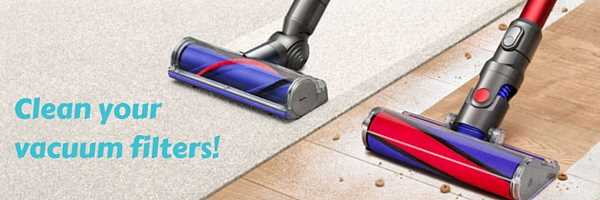
If you’re not sure whether it’s time to clean your vacuum cleaner filter, there are several signs to look out for. These indicators can help you determine if your filter is in need of a good cleaning:
- Reduced suction power: One of the most common signs that your vacuum cleaner filter needs cleaning is a decrease in suction power. If you notice that your vacuum isn’t picking up dirt and debris as effectively as it used to, it’s likely that the filter is clogged and needs to be cleaned.
- Dusty or dirty exhaust: Another sign to watch out for is if you notice that the exhaust from your vacuum cleaner is dusty or dirty. This is a clear indication that the filter is no longer able to trap and hold the dirt and dust particles, and is instead releasing them back into the air.
- Unpleasant odor: If your vacuum cleaner is emitting an unpleasant odor while in use, it could be a sign that the filter is dirty and needs cleaning. Over time, the accumulation of dirt and debris on the filter can lead to a musty or stale smell.
It’s important to note that the frequency at which you’ll need to clean your vacuum cleaner filter will vary depending on several factors, such as the type of vacuum cleaner and the amount of use it gets. However, paying attention to these signs will help you determine when it’s time to give your filter a thorough cleaning.
How to Identify a Dirty Filter
Keeping your vacuum cleaner filter clean is essential for maintaining its performance and prolonging its lifespan. But how do you know if your filter is dirty and needs cleaning or replacing? Here are some signs to look out for:
1. Reduced Suction Power
One of the most obvious signs of a dirty filter is reduced suction power. If you notice that your vacuum cleaner is not picking up dirt and debris as effectively as it used to, it could be due to a clogged or dirty filter. When the filter becomes full of dust, it restricts the airflow, resulting in weak suction.
2. Dust and Debris Escaping the Vacuum
If you start seeing dust and debris escaping from your vacuum cleaner, it’s a clear indication that the filter is not doing its job properly. A dirty filter fails to trap the particles effectively, allowing them to pass through and be released back into the air. This can be particularly problematic for people with allergies or respiratory issues.
3. Unpleasant Odors
A dirty filter can also cause unpleasant odors to emanate from your vacuum cleaner. As dust and debris accumulate on the filter, they can start to produce a musty or stale smell. If you notice an unpleasant odor coming from your vacuum, it’s time to clean or replace the filter.
4. Visual Inspection
Another way to identify a dirty filter is through a visual inspection. Take out the filter from your vacuum cleaner and examine its condition. If you can see a layer of dust and debris covering the filter or if it appears discolored, it’s a clear indication that it needs cleaning or replacing.
5. Manufacturer’s Recommendations
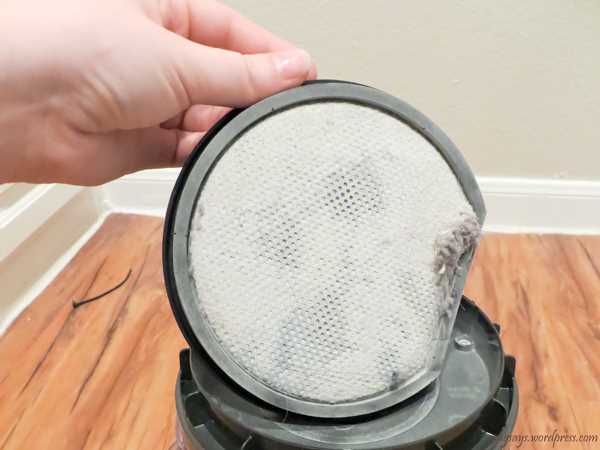
Lastly, it’s always a good idea to refer to the manufacturer’s recommendations for cleaning and replacing your vacuum cleaner filter. Different models and brands may have specific guidelines on how often the filter should be cleaned or replaced, based on the frequency of use and the type of debris it picks up.
Regularly checking and cleaning your vacuum cleaner filter is crucial for maintaining its performance and ensuring clean air in your home. By being aware of the signs of a dirty filter, you can take the necessary steps to keep your vacuum cleaner running optimally.
Recommended Frequency for Cleaning Vacuum Cleaner Filters
Regular Maintenance
Cleaning your vacuum cleaner filters regularly is crucial for optimal performance and prolonging the lifespan of your vacuum cleaner. The frequency of cleaning your vacuum cleaner filters depends on several factors such as the type of filter, the usage frequency, and the dust and debris accumulation in your home. It is generally recommended to clean the filters every 1 to 3 months.
High-Frequency Usage
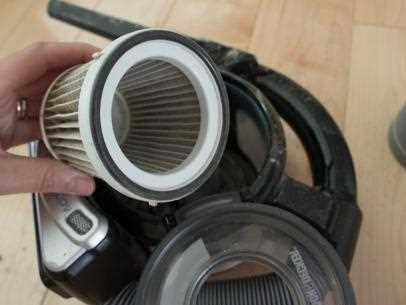
If you frequently use your vacuum cleaner or have a large household with pets or children, you may need to clean the filters more often. High-frequency usage leads to faster dust and debris accumulation in the filters, reducing their efficiency. In such cases, it is advisable to clean the filters every 3 to 4 weeks to ensure optimal performance.
Visible Dirt and Dust
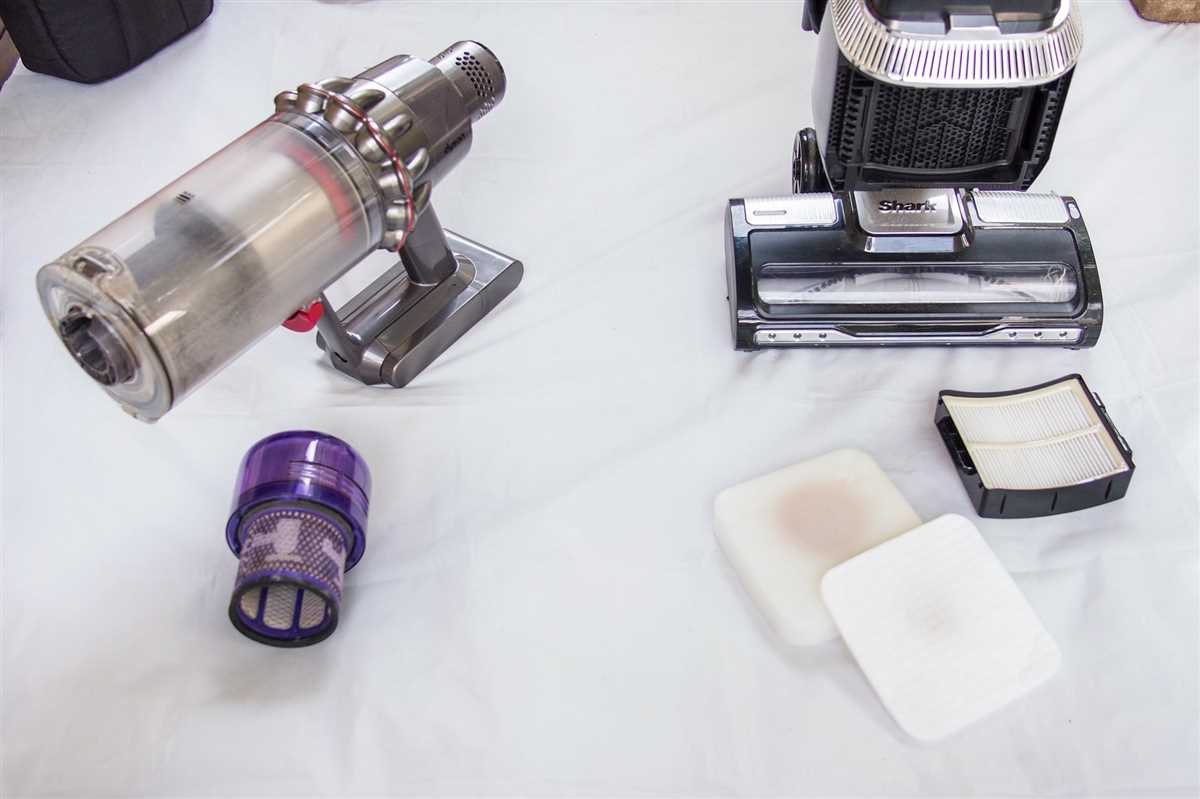
If you notice visible dirt and dust on the filters, it is an indication that the filters need immediate cleaning. Do not wait for the recommended time frame; instead, clean the filters promptly. Accumulated dirt and dust can clog the filters, affecting suction power and reducing overall performance.
HEPA Filters
If your vacuum cleaner has a HEPA (High-Efficiency Particulate Air) filter, it is crucial to follow manufacturer guidelines regarding the cleaning frequency. HEPA filters are designed to trap tiny particles and allergens, which can clog the filter quicker. Cleaning HEPA filters may vary from once a month to every 6 months, depending on the brand and model.
How to Clean Vacuum Cleaner Filters
- Refer to the user manual: Always consult the user manual for specific instructions on cleaning your vacuum cleaner filters.
- Remove the filters: In general, vacuum cleaner filters can be easily removed by releasing the filter cover or opening the filter compartment.
- Shake off loose dirt: Gently shake the filter to remove loose dirt and debris. You can also use a soft brush to dislodge any stubborn particles.
- Wash with water: Rinse the filters under running water, using your hands to remove any remaining dirt. Avoid using hot water as it may damage the filter.
- Dry thoroughly: After cleaning, allow the filters to air dry completely before reinserting them into the vacuum cleaner. This prevents mold and mildew growth.
Conclusion
Regularly cleaning your vacuum cleaner filters is essential for maintaining suction power and ensuring efficient cleaning. The recommended frequency of cleaning depends on the type of filter and the usage frequency. Following the manufacturer’s guidelines and keeping an eye on the filters’ condition will help you determine when it’s time to clean them. By taking proper care of your vacuum cleaner filters, you can extend the life of your vacuum cleaner and enjoy clean and fresh surroundings.
Factors to Consider for Cleaning Frequency
- Usage Frequency:
- Environment and Flooring Type:
- Filter Type:
- Performance of the Vacuum Cleaner:
The frequency at which you use your vacuum cleaner is a key factor in determining how often you should clean the filter. If you vacuum daily or several times a week, you may need to clean the filter more frequently compared to someone who only vacuums once a week or less.
The environment you live in and the type of flooring in your home can also impact the cleaning frequency of your vacuum cleaner filter. If you live in a dusty area or have pets that shed a lot, your filter may clog more quickly and require more frequent cleaning. Similarly, if you have carpeted floors, your filter may accumulate more dirt and debris compared to hardwood or tile floors.
The type of filter your vacuum cleaner has will also affect how often it needs to be cleaned. Some filters, like HEPA filters, are designed to trap smaller particles and may clog faster. Others, like foam filters, may be easier to clean and have a longer lifespan. Check the manufacturer’s guidelines for your specific filter type to determine the recommended cleaning frequency.
If you notice that your vacuum cleaner is not picking up dirt as effectively as before, it may be a sign that the filter needs to be cleaned. A clogged filter can restrict airflow and reduce the suction power of the vacuum, resulting in poor performance.
Step-by-Step Guide on How to Clean Vacuum Cleaner Filters
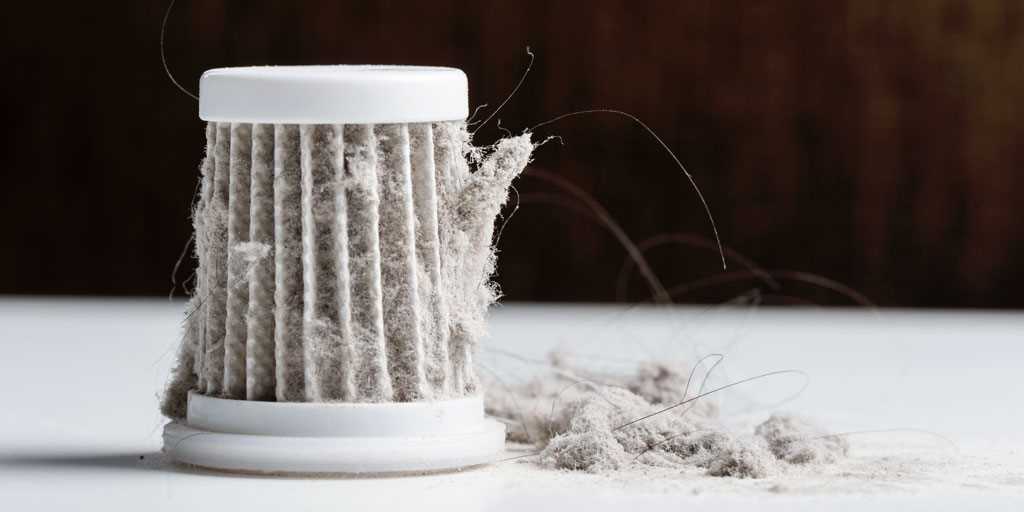
1. Check the manufacturer’s instructions
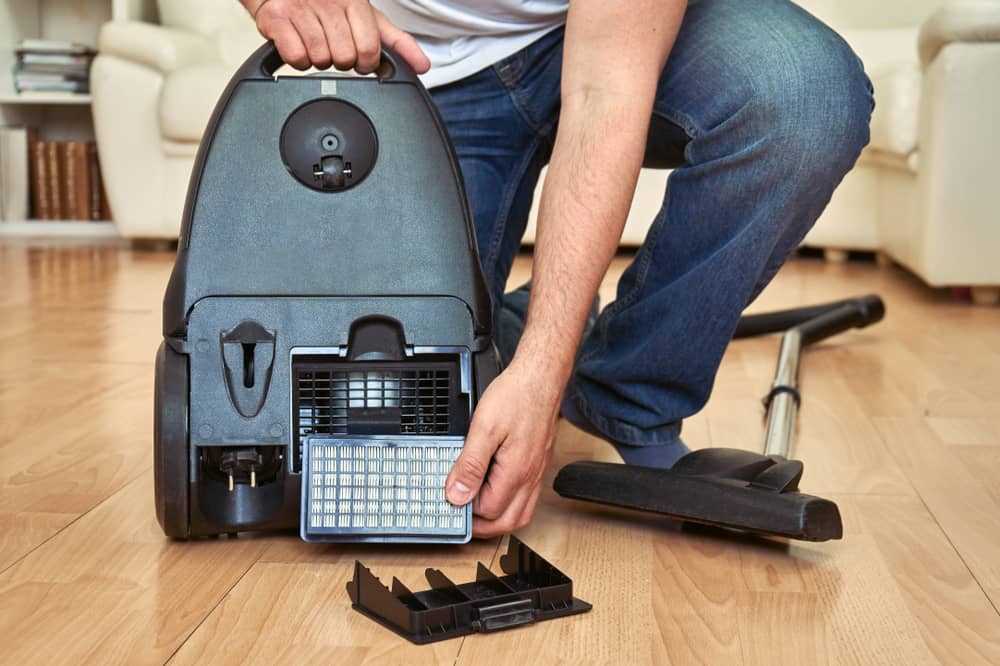
Before cleaning your vacuum cleaner filter, it’s important to check the manufacturer’s instructions. Different vacuum cleaners may have different types of filters and cleaning methods.
2. Turn off and unplug the vacuum cleaner
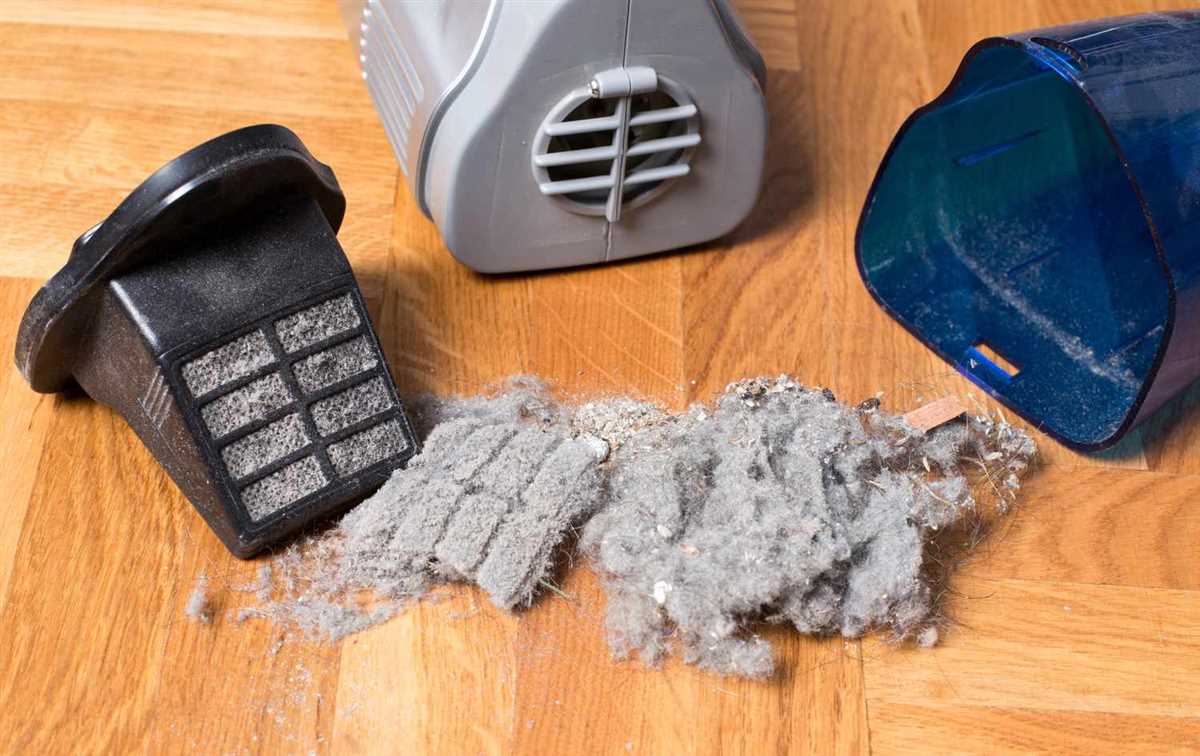
Ensure that the vacuum cleaner is turned off and unplugged before attempting to clean the filters. This is crucial to avoid any accidents or injuries during the cleaning process.
3. Remove the filter
Locate the filter compartment on your vacuum cleaner and remove the filter. Depending on the model, the filter may be in a removable cartridge or a washable foam sleeve.
4. Dispose of accumulated debris
Check the filter for any visible debris or dirt. Empty the contents into a trash bag or bin. It’s important to dispose of this debris properly to avoid scattering it back into the air.
5. Clean the filter
Depending on the type of filter, you can either wash it or use a brush to remove the trapped dirt and dust. If the filter is washable, gently rinse it under running water until the water runs clear. If it’s a foam filter, you may need to use a mild detergent to remove stubborn stains. Let the filter dry completely before reinserting it into the vacuum cleaner.
6. Clean the filter compartment
While the filter is drying, take the opportunity to clean the filter compartment. Use a clean cloth or brush to remove any dirt or debris that may have accumulated inside. This will help ensure that the vacuum cleaner operates at its optimal performance.
7. Reinstall the filter
Once the filter is completely dry, reinstall it back into the filter compartment. Make sure it’s properly seated and secured to prevent any air leaks during vacuuming.
8. Regularly maintain and clean the filter
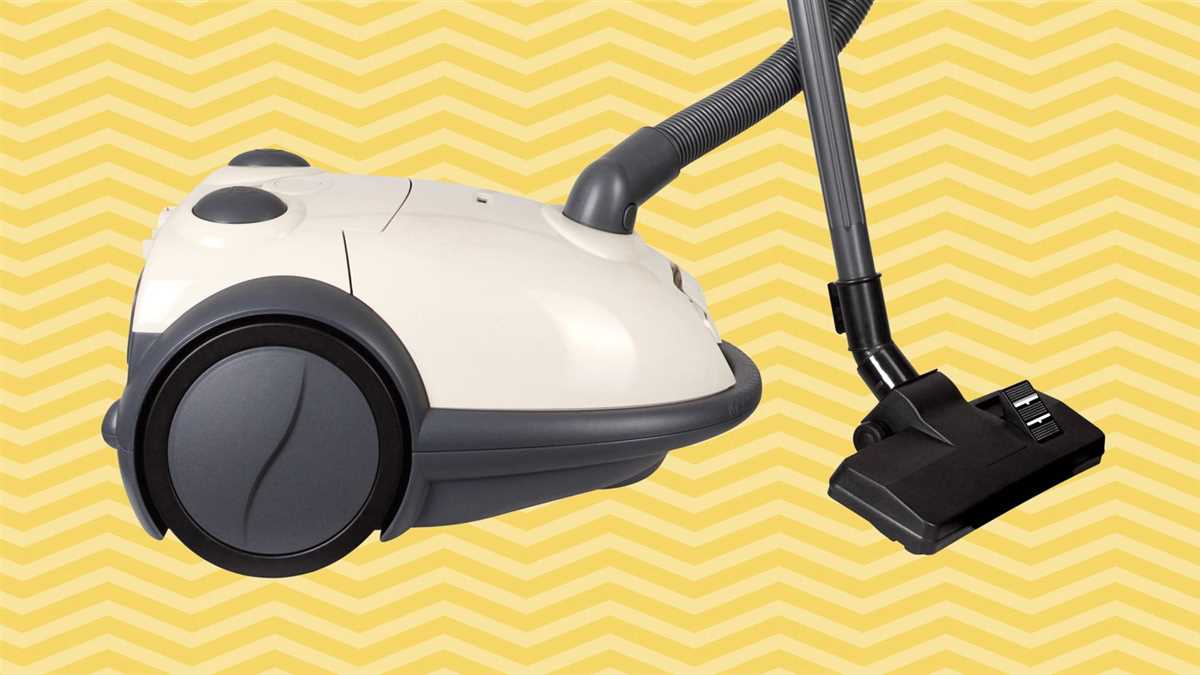
Cleaning the vacuum cleaner filter should be a regular part of your maintenance routine. Depending on the manufacturer’s instructions, you may need to clean the filter after every few uses or once a month. Regular maintenance will help extend the lifespan of your vacuum cleaner and ensure it continues to work efficiently.
By following these step-by-step instructions, you’ll be able to clean your vacuum cleaner filters effectively and maintain the performance of your vacuum cleaner for years to come.
FAQ
How often should I clean my vacuum cleaner filter?
It is recommended to clean your vacuum cleaner filter at least once a month.
What happens if I don’t clean my vacuum cleaner filter regularly?
If you don’t clean your vacuum cleaner filter regularly, it can become clogged with dirt and debris, which reduces the suction power of the vacuum and can lead to poor cleaning performance.
How do I clean my vacuum cleaner filter?
To clean your vacuum cleaner filter, remove it from the vacuum and tap it gently to remove loose dirt and debris. Then, rinse the filter with water and allow it to air dry completely before reinstalling it.
Can I wash my vacuum cleaner filter?
Yes, most vacuum cleaner filters can be washed with water. However, it’s important to check the manufacturer’s instructions to ensure that this is the case for your specific model.
Do I need to replace my vacuum cleaner filter?
It depends on the type of filter you have. Some filters are washable and reusable, while others need to be replaced regularly. Refer to the manufacturer’s instructions to determine if your filter needs to be replaced.
Can a dirty vacuum cleaner filter cause allergies?
Yes, a dirty vacuum cleaner filter can release allergens back into the air, which can trigger allergies in sensitive individuals. Regularly cleaning and maintaining your vacuum cleaner filter can help improve indoor air quality and reduce allergy symptoms.
Is there a specific time of day that is best for cleaning the vacuum cleaner filter?
There is no specific time of day that is best for cleaning the vacuum cleaner filter. You can clean it whenever it is convenient for you, as long as you do it regularly to maintain optimal performance.











